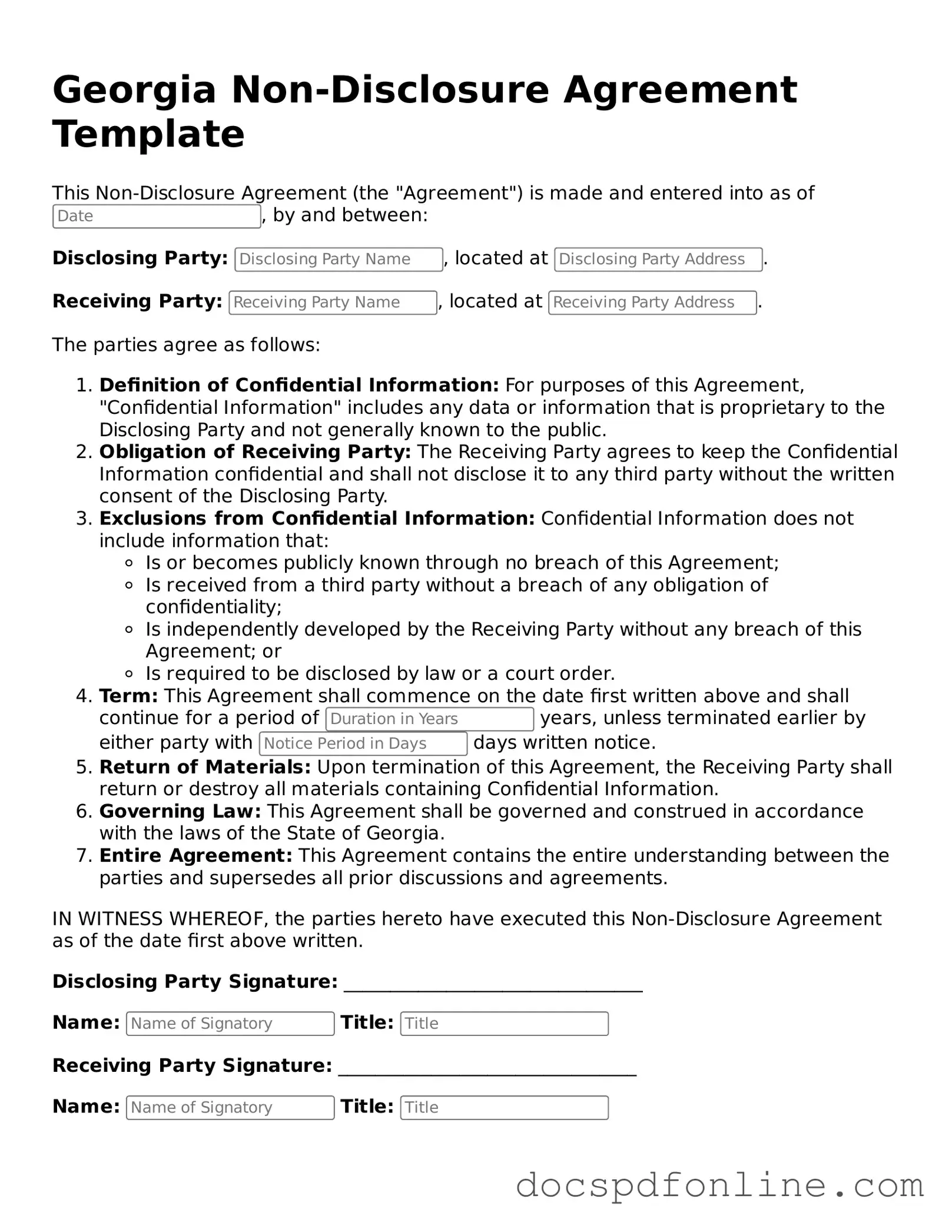Legal Non-disclosure Agreement Template for Georgia
A Georgia Non-disclosure Agreement (NDA) is a legal document designed to protect confidential information shared between parties. This form ensures that sensitive details remain private and are not disclosed to unauthorized individuals. By using an NDA, businesses and individuals can foster trust while engaging in discussions or collaborations.
Launch Editor Now

Legal Non-disclosure Agreement Template for Georgia
Launch Editor Now
Save time — finish this form fast
Finish Non-disclosure Agreement online — edit, save, download made easy.
Launch Editor Now
or
↓ PDF File
